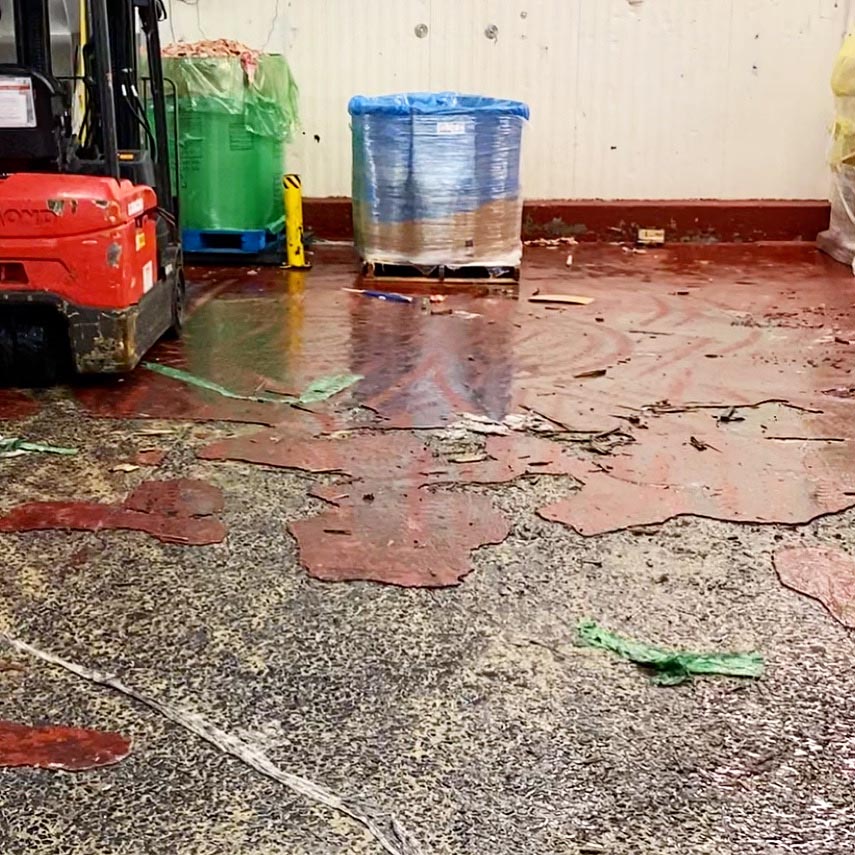The Cost of Disruption
Facilities professionals understand the high costs of disruption when routine maintenance and renovations must be performed. It is simply a part of the cost of doing business and is factored into annual budgets and schedules.
However, what is NOT factored into annual planning and budgeting is the high cost of wrong decisions.

The floor pictured here was installed less than one year ago and is an illustration of the high costs of selecting a low bidder versus the best value offered by an experienced, professional, resinous floor installer. The original installation costs and shutdown time were budgeted – doing the job a second time, including the removal of the failed flooring and the application of proper industrial floor system by skilled professionals was not. Clearly, a decision to go with the proper floor system and the most skilled technicians would have been a far more efficient and economical choice in the long run.
Painters Need Not Apply. Industrial Flooring Professionals at Work!
Epoxy was first used in the early 1950s for concrete restoration. Over the last couple of decades, epoxy-painted floors have hit the mainstream consciousness and have become a preferred coating for residential garages. Home DIYers and commercial painters have begun applying what is colloquially known as epoxy paint.
There is a vast difference between epoxy paint and a true high-performance epoxy mortar or urethane cement, however.
The main difference is in the quality and durability of the materials as well as the skill required to successfully install the product. Common household epoxy paint is good only for light-duty applications and was never intended for industrial use. It is manufactured with a long pot life for easier application. Products like this may perform beautifully for light traffic, and residential use but are not strong or durable enough for industrial use.
Measurable Benefits, Impenetrable Protection
Industrial floor systems are used in an array of industry facilities including chemical processing, food processing, electronics, aviation, pharmaceuticals, and warehousing. These systems protect concrete floors as well as products in the facility and provide a safe working environment for staff. They are seamless, easy to clean and non-toxic. High-gloss flooring options can even save you money on your electric bill by reflecting light so that fewer indoor lights are needed.
Performance Characteristics of Industrial Floor Systems:
- Abrasion resistant
- Impact resistant
- Thermal resistant
- Chip/flake resistant
- Corrosion resistant
- Anti-slip (safety)
- Antibacterial
- Antimicrobial
- Antistatic
- Hygienic
- Long-lasting
A Leading Industrial Flooring Contractor for More Than 30 Years.
Ready to explore industrial flooring solutions for your facility? Schedule a free consultation with our experts! We’ll review your project requirements, inspect your current flooring, and customize a total flooring solution that maximizes your operational efficiencies and minimizes downtime!

Get in Touch
We know you’re busy. We’re here to get you the information you need as quickly as possible. Whether you just want a quick estimation on your project specifications or want to talk to an expert about your project, we are here to help you.

